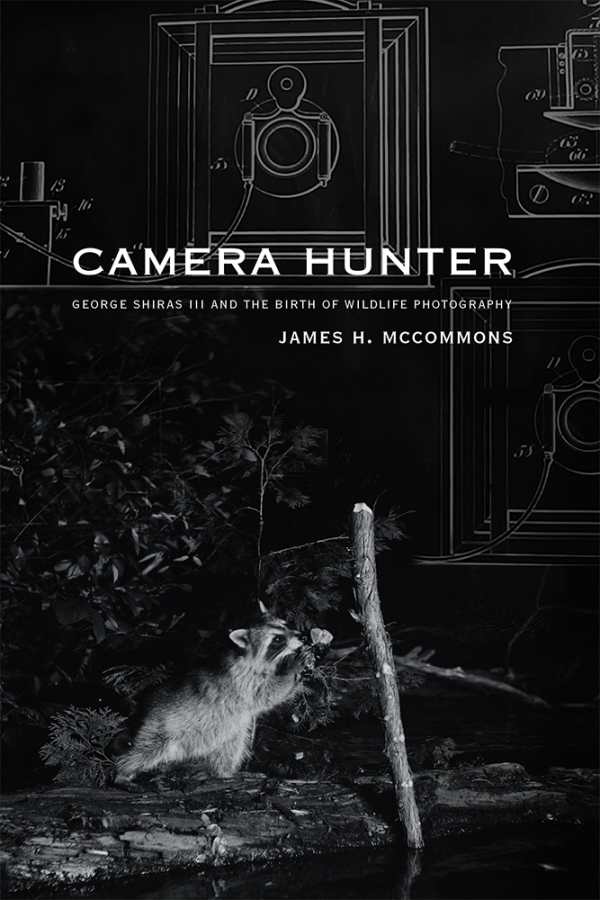Camera Hunter
George Shiras III and the Birth of Wildlife Photography
Born in 1859 into wealth and political power—his father was a Supreme Court justice; he served in Congress—George Shiras III’s long life spanned the Gilded Age, the Progressive Era, and the New Deal. James H. McCommons’s engaging biography Camera Hunter shows how Shiras was molded by the events of his historical periods.
Shiras’s wealth meant that he could pursue hunting, fishing, and photography in leisure. His pioneering use of chemicals that created light flashes decades before the invention of flash bulbs enabled him to photograph wildlife at night for the first time. Shiras also invented the camera trap, a camera rigged so that when an animal stepped on it, it would capture a three-dimensional negative of the bewildered critter. National Geographic, the book reveals, became the most popular wildlife journal in no small part because of the stunning photos that resulted, and several of those photographs are included in the text.
Shiras is also credited with taking the first daytime photos of wildlife from a canoe and a blind; he was also the force behind the Weeks-McClean Act, the most important wildlife conservation law of his time. The biography is full of lively descriptions of Shiras’s wildlife expeditions, both in the Florida Everglades and throughout Michigan’s Upper Peninsula, where Shiras spent more than fifty summers.
Humorous portraits of the rough-hewn eccentrics who served as wilderness guides, and who became lifelong friends, are included. Some of the book’s most poignant tales depict Shiras’s sixteen-year friendship with fellow conservationist Theodore Roosevelt.
In addition to being a thorough biography, an entertaining travel guide, and a rich and detailed history of the early conservation movement, Camera Hunter will enthrall nature lovers, enlighten scholars, and fascinate photography hobbyists and professionals.
Reviewed by
Karl Helicher
Disclosure: This article is not an endorsement, but a review. The publisher of this book provided free copies of the book to have their book reviewed by a professional reviewer. No fee was paid by the publisher for this review. Foreword Reviews only recommends books that we love. Foreword Magazine, Inc. is disclosing this in accordance with the Federal Trade Commission’s 16 CFR, Part 255.

